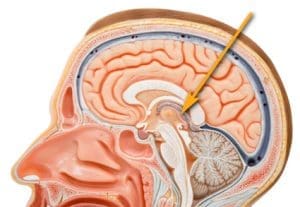
the Oxford University Press has announced its Oxford Word of the Year 2024. Of six nominees, including “romantasy”, “brain rot” was the winner. So what is brain rot? And why do you need to know it? Let’s dig deeper.
Dr. Grant criticized device manufacturers and content producers for keeping users hooked to their devices, comparing them to the designers of slot machines.
The announcement was made on December 2. Frankly, I was scratching my head.
I thought brain rot was slang for what happens to the brain when we think too much for long periods of time, or perhaps the effects of long-term substance use.
But when I read the Oxford definition, not only did I understand it, I knew I had to learn more and bring it here.
Backing me up is an excellent Fox News article titled “What is ‘Brain Rot’? The science behind what too much scrolling does to our brains,” dated December 15. The article was written by Angelica Stabile.
Let’s get to work…
What is brain rot?
Here’s what the folks at Oxford University Press have to say about brain rot…
“…the alleged deterioration of a person’s mental or intellectual state, especially seen as a result of excessive consumption of material (now particularly online content) considered trivial or unchallenging. Furthermore: something characterized as likely to lead to such deterioration.”
They went on to say that their experts noted that “brain rot” gained new prominence in 2024 as a term used to express concerns about the impact of overconsumption of low-quality online content, especially on social media.
The vision of Dr. Kyra Bobinet
The Fox News article presented the views of behavioral neuroscientist Dr. Kyra Bobinet, author of Brain non-stop. She confirmed the growing awareness about the word “brain rot”, how it is caused and its consequences.
She believes it stems from attention span difficulties, which have become increasingly common. The accompanying brain fog and compromised concentration make performing work of any depth nearly impossible.
Dr. Bobinet argues that what she calls the “loneliness epidemic” increases misery, because we find it difficult to focus on anything, including building relationships.
The Anatomy of Brain Rot
Since the beginning of my journey through emotional and mental illness, I have enjoyed connecting thoughts, feelings, and behaviors with anatomy and physiology. And even if you don’t know it, Dr. Bobinet goes there.
the habenula

Habenula
The habenula is a pea-sized bilateral neural structure deep in the brain. According to Dr. Bobinet, it is responsible for getting stuck in the endless scrolling associated with brain rot.
The habenula is involved in functions such as motivation and decision making. And according to Dr. Bobinet, when activated it can “kill our motivation to try.”
He goes on to say that the habenula is the “heart” of knowing that we should be doing something, but instead we do other things, like doomscrolling.
Speaking of which, check out this article from several months ago: The emotional and mental consequences of doomscrolling.
Dissociation and rest
Dr. Bobinet points out that browsing social media is a way to “disassociate” from life in the moment and give your brain a break.
In reality, it is an avoidance mechanism controlled by the habenula. In fact, every time we avoid something, we can be sure that the habenula is activated.
According to Dr. Bobinet, this is how social media addictions can form, as this part of the brain can make it “painful” to stop browsing. And that can result in a dangerous loss of motivation.
That will do it for our talk on brain rot anatomy. I have to ask: do you find connections like this interesting? Think about it, a pea-sized group of neurons deep in the brain has so much power over our lives. It’s hard to understand.
How to avoid brain rot
Now we know what brain rot is. By the way, do you have it? Well, are you on your way, like me?
Well, what are we going to do about it?
Well, Dr. Bobinet says there is no one-size-fits-all solution. That means we have to learn what works best for us – modifying and adjusting along the way. Fortunately, natural resilience is one of our greatest assets.
Imagine, this is also the case with emotional and mental illnesses.
Dr. Don Grant: device manufacturers and content producers
The Fox News article also included opinion from Dr. Don Grant, national healthy device management advisor at Newport Healthcare.
Dr. Grant criticized device manufacturers and content producers for keeping users hooked to their devices, comparing them to the designers of slot machines. As he himself said: “Pull the lever… You never know what you’re going to get.”
Alarmingly, Dr. Grant expressed concern about “the death of some things,” including imagination, memory, and education. Did you know that there is so much at stake?

What is happening to the brains of our children and adolescents?
And our kids and teens: Dr. Grant said they often tell him they spend eight hours on any given night watching videos, which, of course, disrupts healthy preparation for falling asleep.
And you know what? When you ask them the name of a video they watched, their minds go blank.
I think you will find social media and youth mental health – a relevant and important notice.
And what do you think of this as scary? Dr. Grant believes that our brain matter is decreasing. And like Dr. Bobinet, he is very concerned about our attention spans.
Tips to avoid getting stuck
Dr. Grant offered some tips to avoid getting stuck in a doom-laden scroll of “endless, bottomless content.”
First, he notes that the Internet is “archived forever.” That being the case, fear of missing out (FOMO) cannot be a problem.
He urges people to divide their time online, suggesting 80% for “meaningful and legitimate” content and 20% for entertainment. She also suggests setting boundaries at home, such as schedules and technology-free zones.
And how about this? Dr. Grant would like us to ask questions after moving around to help evaluate the quality of time spent. They may include: “How much time did you spend online? Did you spend more time than you wanted? Did you feel better?
Dr. Grant emphasizes outdoor physical activity and games that are intellectually challenging or educational.
Perhaps most important of all, it asks: “There is a perceived danger in virtual life and the way we use our free time; in the end, do you really feel good about yourself?”
Monitor and make adjustments.
That was a lot of information, right? Given what is at stake, we must learn everything we can about brain rot.
And at least as important, we need to monitor our personal travel habits and make appropriate adjustments. And it is essential to be attentive to the habits of the children and adolescents for whom we are responsible.
Be sure to check out the Fox News article: What is ‘brain rot’? The science behind what too much scrolling does to our brains”
See what’s up with Dr. Kyra Bobinet. Lots of interesting things on your site.. And learn more about Dr. Don Grant.
Hey, if you’re looking for even more reading material, go ahead and peruse Chipur’s information and inspirational titles. You’ll be glad you did.

After a decades-long battle with panic, generalized anxiety, mood swings and alcohol dependence; Bill finally found his life’s passion and work: lending a hand to those in the same boat. At age 49 he entered graduate school and earned his counseling credentials. And he continues his service through Chipur and other projects.







